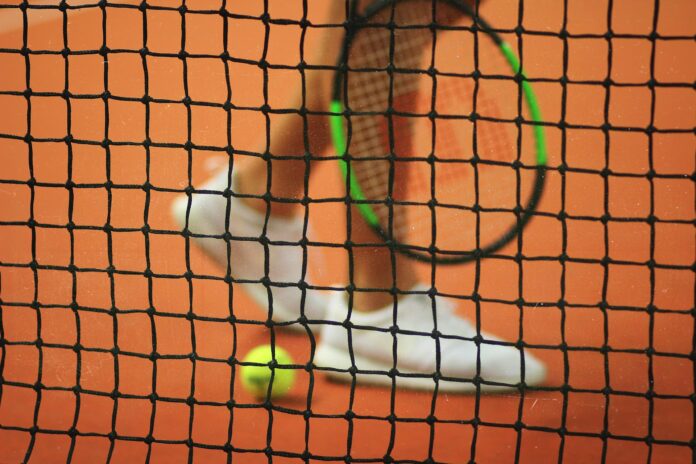Aryna Sabalenka anticipates a difficult match against close friend Paula Badosa as they compete for a spot in the French Open fourth-round
Aryna Sabalenka, the world number two and reigning Australian Open champion, expressed her mixed emotions about facing her best friend, Paula Badosa, for a place in the French Open fourth round. The match, scheduled to be the second on Court Philippe Chatrier, promises to be both challenging and emotionally charged for the two athletes.
Sabalenka has been in outstanding form at Roland Garros, losing just seven games in her two commanding straight-set victories. She praised Badosa, saying, “She’s my favourite. I love her so much. I love to see her play, and she’s really a great fighter. It’s always tough to play your best friend on tour, but we know how to separate court and life. It’s always a great battle. I always enjoy playing against her.”
Badosa, a former quarter-finalist, has demonstrated resilience by twice coming back from a set down to reach the third round. She defeated British number one Katie Boulter and Kazakhstan’s Yulia Putintseva, setting up the clash with Sabalenka. Reflecting on the upcoming match, Badosa said, “She has a big personality, she’s a good girl, always bringing good energy, even on court. I think it’s going to be fun. Sharing the court with her after all these results she’s doing is a pleasure for me.”
Elsewhere in the women’s singles draw, fourth seed Elena Rybakina faces Belgium’s Elise Mertens in the opening match on Philippe Chatrier. Rybakina, the 2022 Wimbledon champion, has only advanced past the third round of the French Open once. American 14th seed Madison Keys meets compatriot Emma Navarro on Court Suzanne Lenglen, while Chinese seventh seed Zheng Qinwen faces Russian Elina Avanesyan on Court Simonne Mathieu.
In the men’s singles, defending champion Novak Djokovic continues his quest for a record 25th Grand Slam title. He faces Italy’s Lorenzo Musetti in the night session on Philippe Chatrier. Djokovic has had a challenging first half of 2024, failing to reach a final while his top ranking is under pressure from world number two Jannik Sinner, who secured his fourth-round spot on Friday. Djokovic’s compatriot Olga Danilovic praised him, saying, “He’s a very humble and nice guy, especially considering he’s number one in the world and, for me, the greatest of all time. The mentality he has is something out of this planet.”
On Saturday, fourth seed Alexander Zverev meets Dutchman Tallon Griekspoor. Zverev’s trial over domestic abuse allegations began on Friday, with the German player denying the claims. Norwegian seventh seed Casper Ruud plays Argentina’s Tomas Martin Etcheverry, and Denmark’s Holger Rune faces Slovakia’s Jozef Kovalik.
In doubles action, Britain’s Joe Salisbury and American partner Rajeev Ram, who have won four men’s doubles Grand Slam titles, continue their campaign after a straight-set win on Friday. They meet Kazakhstan’s Aleksandr Nedovyesov and Ecuador’s Gonzalo Escobar in round two. Other Britons competing in men’s doubles include Jamie Murray, Henry Patten, Luke Johnson, and Neal Skupski, all with non-British partners. Salisbury and Heather Watson will also team up in mixed doubles. Maia Lumsden, the only British player remaining in the women’s doubles, partners with China’s Wang Yafan against Ukraine’s Nadiia Kichenok and Japan’s Miyu Kato.
Analysis:
The upcoming match between Aryna Sabalenka and Paula Badosa at the French Open provides a fascinating lens through which to examine several important dynamics in professional tennis. The emotional and psychological aspects, the broader implications of player relationships, and the competitive pressures all contribute to a rich narrative.
Psychologically, facing a best friend on the court poses unique challenges. Both Sabalenka and Badosa must balance their personal relationship with their professional drive. This situation tests their mental fortitude and ability to compartmentalize emotions, illustrating the intricate balance elite athletes must maintain. Sabalenka’s comments about loving Badosa and enjoying their matches highlight the deep personal connection, adding a layer of complexity to the competitive aspect of the match.
From a sociological perspective, the camaraderie and respect between the two players reflect the supportive culture that can exist within competitive sports. Despite the high stakes, their friendship shows that personal connections and sportsmanship can coexist with intense competition. This dynamic contrasts with the often adversarial relationships seen in other sports, emphasizing the unique culture of tennis.
Economically, the presence of high-profile matches such as Sabalenka versus Badosa at the French Open drives significant revenue through broadcasting rights, sponsorships, and fan engagement. Matches featuring top-ranked players with compelling personal stories attract larger audiences, enhancing the tournament’s commercial appeal. This economic impact underscores the importance of star power and narrative in sports marketing.
Politically, the participation of players from different countries at an international tournament like the French Open highlights the global nature of tennis. Sabalenka, from Belarus, and Badosa, from Spain, represent their nations on a prestigious platform, contributing to their countries’ sporting prestige. The international mix of players fosters cross-cultural exchanges and showcases the unifying power of sports.
Gender perspectives are also crucial in this analysis. The visibility and success of female athletes like Sabalenka and Badosa contribute to the ongoing efforts to promote gender equality in sports. Their performances and the attention they receive help challenge traditional gender norms and inspire young girls worldwide to pursue sports. Additionally, their friendship and mutual respect serve as powerful examples of how women can support each other in competitive environments.
Locally, the match holds significant importance for fans of Sabalenka and Badosa. Their respective national fanbases are deeply invested in their success, which fosters a sense of community and national pride. The personal connection fans feel with their favourite players amplifies the emotional stakes of the match.
In conclusion, the Sabalenka-Badosa match at the French Open encapsulates the multifaceted nature of professional tennis. It intertwines psychological resilience, sociological dynamics, economic impact, political representation, and gender perspectives. This rich tapestry of factors makes the match not just a sporting event but a significant cultural moment, highlighting the complexities and beauty of sports.
